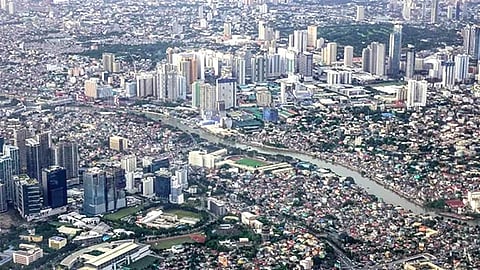
- NEWS
- the EDIT
- COMMENTARY
- BUSINESS
- LIFE
- SHOW
- ACTION
- GLOBAL GOALS
- SNAPS
- DYARYO TIRADA
- MORE

Office space vacancy in Metro Manila climbed to 19.9 percent in 2024, equivalent to nearly 1.8 million sqm. of available office space, according to the latest Real Estate Market Monitor by real estate services firm CBRE.
Of the available spaces, 51 percent are vacated units, while 49 percent remain unleased. CBRE Philippines country head Jie Espinosa clarified that the increase is not solely due to the ban on Philippine Offshore Gaming Operations (POGO) but also the downsizing and relocation of Information Technology and Business Process Management (IT-BPM) firms. Data showed 32 percent of vacated spaces were from IT-BPM firms, while POGOs accounted for 31 percent.
“Most of the vacated spaces were not necessarily just from the POGO sector, but from the IT-BPM sector. They’re not leaving; they’re simply downsizing in certain locations,” Espinosa said.
Espinosa noted that some IT-BPM companies moved to new locations due to client preferences, while others opted for smaller office spaces. NEO, one of the largest office developers in Taguig, acknowledged the slowdown in the office sector and has been implementing strategies to encourage employees to return to physical offices.
NEO CEO Raymond Rufino admitted that the sector is facing challenges, stating, “Broadly, the office sector is having a difficult time.” Co-managing director Carlo Rufino added that work-from-home arrangements remain a major competitor to traditional office spaces.
To attract tenants, some landlords have offered incentives instead of reducing rental rates, including rent-free periods and other benefits.
Despite the high vacancy rate, CBRE remains optimistic that it will decline by the end of 2025. Espinosa cited delays in decision-making by American firms during the 2024 US elections as a key factor affecting leasing activity. However, with the elections concluded, more US-based companies have resumed inquiries for office spaces in the Philippines.
“We’ve seen strong demand from the US healthcare sector, as well as interest from banking, financial services, and insurance companies looking to establish shared services or outsourcing operations in the country,” Espinosa said.
When asked if office vacancy rates would drop to single digits by 2027, as he previously projected, Espinosa said the outlook remains uncertain due to external factors, including potential policy changes under the new Donald Trump administration, which could impact US firms operating in the Philippines.
